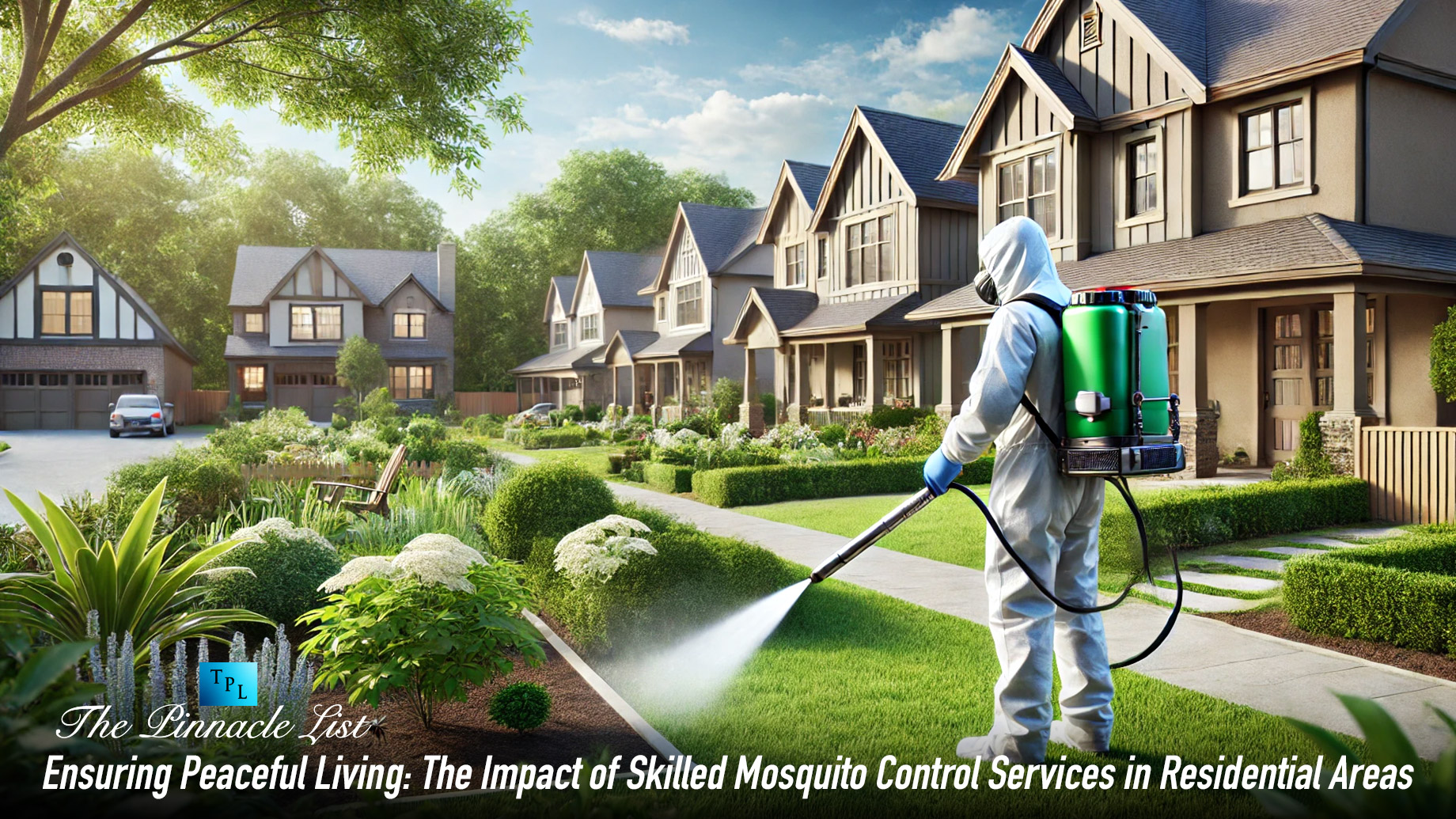
Mosquitoes are more than just a nuisance; they are carriers of dangerous diseases such as malaria, dengue fever, and the Zika virus. Mosquitoes pose a significant threat to the health and well-being of residents in many parts of the world, particularly in warmer climates. In residential areas, skilled mosquito prevention services are crucial in managing such insect populations, ensuring that families can enjoy their homes without the constant annoyance and potential health risks these insects bring.
This article explores the impact of professional mosquito treatment services in residential areas, highlighting their importance in fostering a peaceful living environment.
1. Comprehensive Inspections and Assessments
The first step in effective prevention is a thorough inspection and assessment of the residential area. Skilled professionals begin by identifying potential breeding sites, such as standing water in gutters, birdbaths, and plant saucers. They also assess the level of infestation and the specific species of mosquitoes present. This comprehensive inspection is crucial because it allows the control service to modify its approach to the unique conditions of each home.
2. Source Reduction and Habitat Management
One of the most effective strategies in mosquito prevention is source reduction, which involves eliminating or managing the breeding sites. Skilled professionals educate homeowners about the importance of removing standing water and maintaining clean, well-drained yards. They may also implement habitat management techniques, such as modifying landscaping to reduce areas where mosquitoes can breed. This proactive approach reduces the current mosquito population and prevents future infestations.
3. Targeted Chemical Treatments
In cases where such insect populations are exceptionally high or where there is a risk of disease transmission, targeted chemical treatments may be necessary. Skilled services use effective EPA-approved insecticides against mosquitoes while minimizing risks to humans, pets, and the environment. These treatments are applied strategically to areas where mosquitoes are known to rest or breed, such as shrubs, tall grass, and other vegetation. By targeting these hotspots, professionals can reduce adult mosquito populations quickly and effectively, providing immediate relief to residents.
4. Biological Prevention Methods
In addition to chemical treatments, many prevention services incorporate biological control methods to manage such insect populations. This can include the use of natural predators, such as dragonflies and certain fish species that feed on mosquito larvae. Another biological method involves the introduction of bacteria or fungi that are harmful to mosquitoes but harmless to other wildlife and humans.
5. Integrated Pest Management (IPM) Approach
Skilled mosquito control services often employ an Integrated Pest Management (IPM) approach, combining multiple long-term mosquito prevention strategies. IPM involves a combination of biological, physical, chemical, and cultural methods to manage pests in the most effective and environmentally responsible way. This holistic approach ensures that all aspects of mosquito control are addressed, from prevention and monitoring to treatment and education. By integrating various methods, IPM provides a comprehensive solution that is more sustainable and less disruptive than relying on a single control strategy.
6. Community Education and Involvement
Effective prevention extends beyond individual properties; it requires community-wide efforts. Skilled mosquito treatment services often engage in community education programs to raise awareness about such insects’ prevention and control. They provide residents with information on reducing breeding sites, protecting themselves from bites, and recognizing the signs of mosquito-borne illnesses. Community involvement is crucial because collective action can significantly enhance the effectiveness of control measures.
Conclusion
Skilled services play a vital role in ensuring peaceful living in residential areas. Through comprehensive inspections, source reduction, targeted treatments, biological control methods, an IPM approach, and community education, these professionals effectively manage such insect populations and lower the associated health risks. By partnering with expert control services, residents can enjoy their homes and outdoor spaces free from the constant threat of mosquitoes, contributing to a safer and more pleasant living environment.